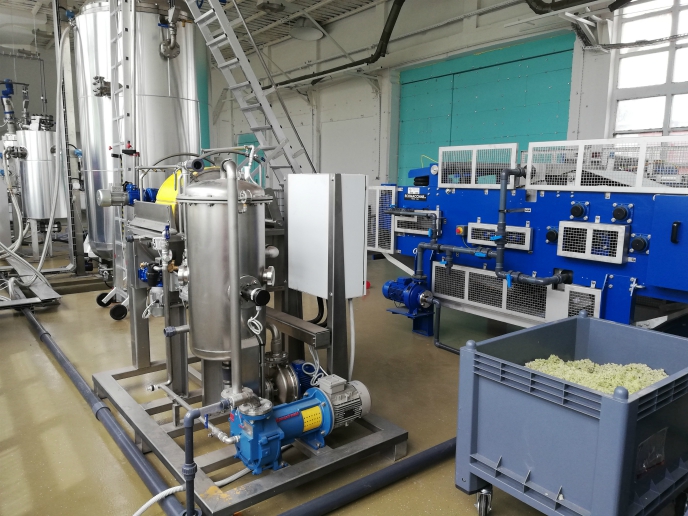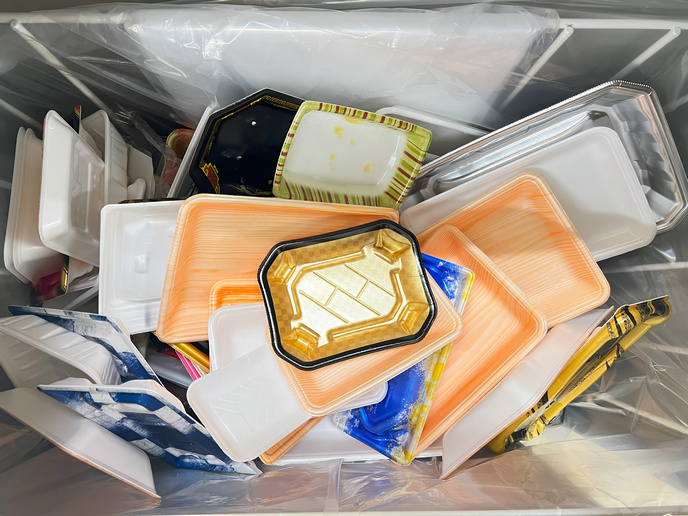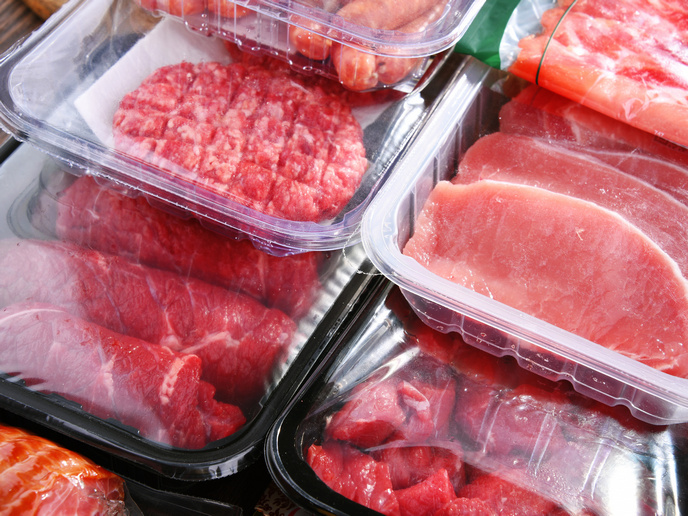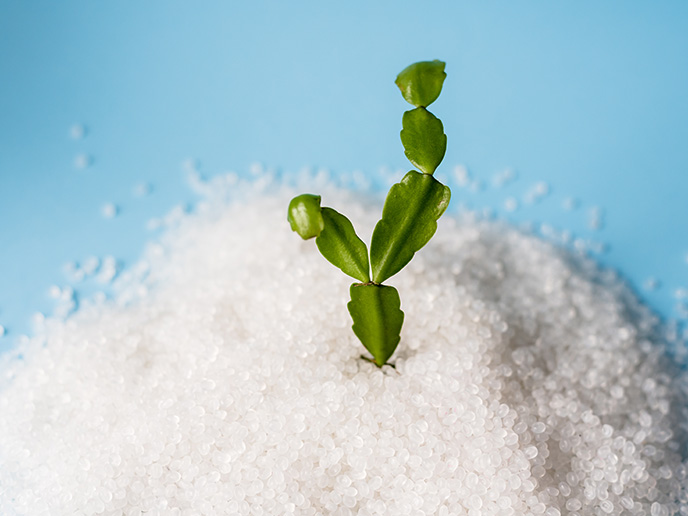Discarded textile now a raw material for the chemical industry
The EU textile industry generates waste estimated at 16 million tonnes per year. Around two thirds of this waste is thrown in landfills or incinerated, with a high environmental impact and at great cost. Valuable resources not recovered from the waste stream are lost. RESYNTEX(opens in new window) is changing this situation with its innovative pilot project – a textile recycling plant – which recycles up to 100 tonnes of waste per year. This demo plant in Slovenia transforms textile waste into secondary raw materials for the chemical and textile industries, creating circularity and reducing environmental impacts. The project used innovative technologies covering the whole textile value chain. The sorted textile waste is chemically treated to extract resources such as protein-based fibres to be used for producing wood panel adhesives and cellulosic fibres for producing bioethanol. Researchers are now scaling up the most promising chemical hydrolysis methods for obtaining new raw materials for producing biodegradable plastics. Polyamide (PA) and polyethylene terephthalate (PET) recovery processes were also trialled to produce new plastics and chemicals. Researchers turned PET degradation to a more eco-friendly and cost-efficient process. The high-quality chemical terephthalic acid is suitable for industrial use and could serve as a secondary raw material for plastic packaging. Another recovered chemical, ethylene glycol, could potentially be used as a defrosting agent.
A holistic approach to textile recycling and reuse
Industrial symbiosis is the process by which waste or by‐products of an industrial process become the raw materials for another. “The chemical and textile industries can both benefit from utilising secondary textile streams. Low-grade textile fibres recycled into new chemical products get a new life instead of being thrown away or incinerated,” notes the technical project coordinator Aleksandra Lobnik. “Recycling fibres and converting them into high-value feedstock requires precise sorting as 50 % of textiles are made from blended fibres. Technologies handling mixed fibres are not readily available on the market,” explains Lobnik. What’s more, although much is invested in plastic-to-textile, textile-to-textile and textile-to-chemical innovation, there is no easy solution for mechanical recycling. RESYNTEX put into practice a holistic approach to address the fragmented nature of textile waste processing. It demonstrated automated fibre-sorting technology that yields approximately 85 % clean textile material of very high purity (99 %). The technology sorts fibre by composition, and is complemented by the use of near-infrared spectroscopy technology. Project partners integrated the automated sorting process with the most promising chemical and enzymatic processes for extracting protein- and cellulose-based natural fibres as well as PA and PET fibres. Liquid and solid waste treatment, and water recycling technologies were also integrated in the process.
Textiles in Europe’s circular economy
Reducing the environmental impact from textile production and consumption, while maintaining economic and social benefits, calls for a systemic change towards circularity. In 2020, EURATEX(opens in new window), a partner in the project, published a position paper(opens in new window) with recommendations for the Extended Producer Responsibility (EPR) policy debate as it felt the problem with most EPRs is that they were designed for linear economy models. RESYNTEX is in line with EURATEX recommendations for boosting broader sustainability across the textile value chain. Its sustainable recycling and chemical processes unlock the value of post-consumer textiles and create a tipping point for a closed-loop textile industry. The pilot plant in Slovenia is still up and running. Consortium members strive to improve and upgrade the RESYNTEX process.







